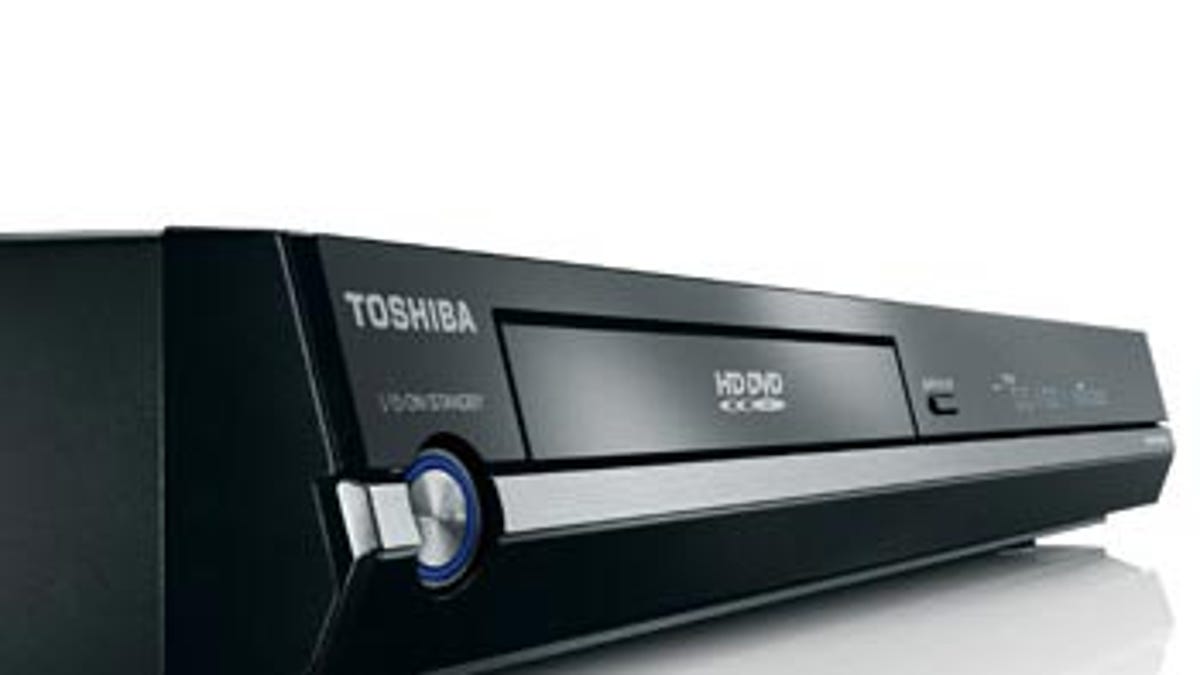Did Toshiba and Sony work together to kill HD DVD?
Don Reisinger believes a conspiracy may have occurred that led to the end of the high-def format war. Did Sony and Toshiba really work together to kill off HD DVD?

When the format war was finally brought to a close, almost everyone was happy to see that we'll only need to watch one format try to survive in the Digital Age instead of two.
And while most of us were sad to see Toshiba throw in the towel and admit that it made a mistake with HD DVD, some were wondering how the house of cards crashed so swiftly. Some said it was due to the departure of some of HD DVD's retailers and rental services, some said it was poor internal operations and still others said it was due to the fact that movie studios simply had enough of the war.
But what if all of those assertions are false? What if all of those companies knew that an undercurrent continuously undermined the growth of HD DVD and helped Blu-ray cement itself as the winner?
What if Toshiba and Sony worked together to kill HD DVD?
Without a frame of reference, that assertion may seem a bit ludicrous. Invariably the first question being asked would address one major issue with HD DVD committing suicide -- the cost of building the format and wooing movie studios. And while I can surely understand that argument, I think it's safe to say that even towards the middle of last year, the future of HD DVD was in doubt and Toshiba was not nearly as willing as Sony to spend cash on making sure this war lasted longer.
But what if I told you that Sony sold a chip facility to Toshiba for $835 million?
According to Reuters, Sony announced last Wednesday, coincidentally just one day after the announced demise of HD DVD, that it sold its microchip production facilities in western Japan to Toshiba. The company will now be tasked with producing the chips found in the PS3 and can also use those in Toshiba products.
And while that may sound innocuous enough, it later surfaced that the talks for this deal started back in October of last year and the delay was allegedly due to a disagreement between what the deal would cost Sony.
Of course, the story doesn't quite end there. At CES in January, both companies came to an agreement on WirelessHD and have stated publicly that they will get the ball rolling together.
On top of that, Toshiba spent a reported $2.7 million on a Super Bowl commercial ad to tell us nothing and said time and again prior to the end of the war that it would try to sell its remaining stock at a discounted price to "jump start sales."
But in the end, it looks like nothing of the sort.
Theory: Sony and Toshiba worked together to put the final nail in the HD DVD coffin
Knowing what we know now, who can possibly say that the death of HD DVD doesn't look a bit suspicious?
This is not to say that the plan was to kill off HD DVD all along, but it should be said that when things looked dire for the format, both companies found a convenient way to end the battle. After all, if you know your format is dying and your competitor comes to you with a sweetheart deal that would also involve the end of your format, why wouldn't you take it?
And if you own the winning format and you see that your competitor is on its last legs and you have a chip facility deal to get done, why wouldn't you go to that competitor who, by the way, has done it in the past for other companies?
If you ask me, the deal probably went down something like this: Toshiba realized that the end was near and was doing all it could to keep its format afloat by dumping huge sums of cash into movie studios. Realizing Sony had deeper pockets, it did what it could to sell players by offering them at a discount in the hopes that better sales would entice movie studios.
After it failed to jump start sales, Sony realized the end was near and offered Toshiba the chip facility deal. After haggling over the cost, both companies agreed to a deal in principle that also included the right of Toshiba to do what it could for a period of three-to-six months to get every last dime out of its dying format.
Unwilling to wait any longer, both companies reached a final deal in late January of this year that included one stipulation -- the end of the format war. Realizing this, major retailers and Netflix got out of the way and the only thing left to do was announce the end of the war.
Did it happen like that? Only Sony and Toshiba executives know. But by the looks of things, there's no reason yet to suggest that it didn't.

